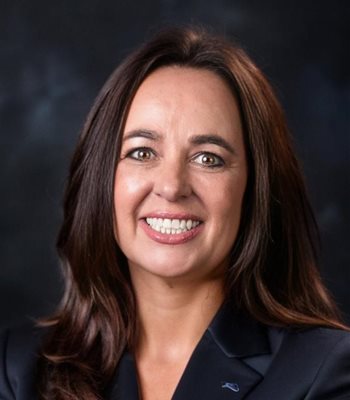
Top stories






More news
















Logistics & Transport
Uganda plans new rail link to Tanzania for mineral export boost










The USA downplayed this as a non-event. However, with no first-hand knowledge of the political will within the Brics block, this stance is potentially dangerous and predominantly based on assumptions.
From a public relations (PR) perspective, technology has opened the world up to companies. Prior to this, it would be a significant undertaking for a company to establish a presence or operate in another country. However, with the internet, a company in South Africa can establish a presence in the UK or US through a PR campaign.
But is this effective? Bullion PR & Communication firmly believes that first-hand knowledge of the market you are expanding into is invaluable, especially if you are expanding from a developed market into a developing one.
Industry standards: South Africa and the UK have well-established PR industries with agencies that adhere to professional standards and best practices. PR agencies in both countries typically offer various services, including media relations, crisis management, event planning, social media management, and strategic communication. It is vital to be aware of industry standards within the country you want to expand into.
Cultural nuances: Cultural differences play a significant role in shaping PR strategies. South Africa is a diverse nation with multiple ethnic groups and languages. In contrast, the UK has its unique cultural nuances, particularly when considering the differences between England, Scotland, Wales, and Northern Ireland. PR agencies in both countries need to be culturally sensitive and tailor their approaches accordingly.
Market size and scope: The UK has a more mature PR industry due to its bigger economy and global influence. This translates to a broader client base and industries served by PR agencies. South Africa's market is comparatively smaller but still offers opportunities across various sectors.
Media landscape: The media landscapes in both countries differ. The UK has a highly developed and competitive media environment. This includes a diverse range of print, broadcast, and digital platforms. South Africa also has a dynamic media landscape with various platforms catering to different demographics. However, it is nowhere near as big as the UK. This has led to South African PR agencies having to be more creative in their approach to the limited options they have as they are fighting for space with these limitations.
Clientele and industries: UK PR agencies have access to a broader range of industries due to the larger market. They often handle international clients and work on global campaigns. South African PR agencies cater to a more localised market, focusing on industries such as mining, finance, tourism, and other sectors that are significant to South Africans.
Regional differences: Bullion PR & Communication has noticed that PR strategies might vary within the regions of both countries. For instance, PR practices in London might differ from those in smaller towns in the UK, just as PR approaches in Johannesburg might vary from those in Cape Town or Durban in South Africa.
Technology and innovation: UK PR agencies are more likely to have early access to the latest technological tools and trends due to the country's advanced tech sector. However, Bullion PR & Communication needs to point out that South African agencies also adopt innovative technologies to stay competitive but still need to catch up regarding international technology adoption. South African PR agencies have to also deal with structural challenges such as load shedding, which makes it more challenging to adhere to deadlines. These are all considerations that are pertinent in developing countries.
Regulations and compliance: Both countries have regulations governing advertising and communication, which PR agencies must navigate. These regulations might vary, impacting the content and strategies employed by agencies. During 2016 and 2017, a sustained dirty campaign by Bell Pottinger came to light in which it played on racial animosity in South Africa. This included the creation of fake news to benefit its client Oakbay Investments, which was controlled by the controversial and influential Gupta family (a family which has strong ties to former South African President Zuma and his government). After several complaints from South African opposition political parties and extensive investigations, Bell Pottinger was expelled from its professional body, the Public Relations and Communications Association (PRCA). The firm permanently closed its doors following the scandal.
Networking and partnerships: UK PR agencies have broader opportunities for networking and partnerships within Europe and globally. South African agencies may have a focus on regional networking and connections.
While there are similarities between PR agencies in South Africa and the UK, differences in market size, cultural nuances, industry specialisation, and regional considerations make for distinct PR landscapes in each country. PR agencies must tailor their approaches to the unique characteristics of their respective markets.
Many international PR agencies claim they have proficiencies in expanding into developing markets. Yet, very few of these companies have a physical presence in the country they claim to have proficiencies in. With over 27 years of experience in the South African PR landscape, Bullion PR & Communication has opened a London office and focuses on companies that want to expand from Europe and the Middle East into Africa. Our African presence and local market knowledge are significant value differentiators.